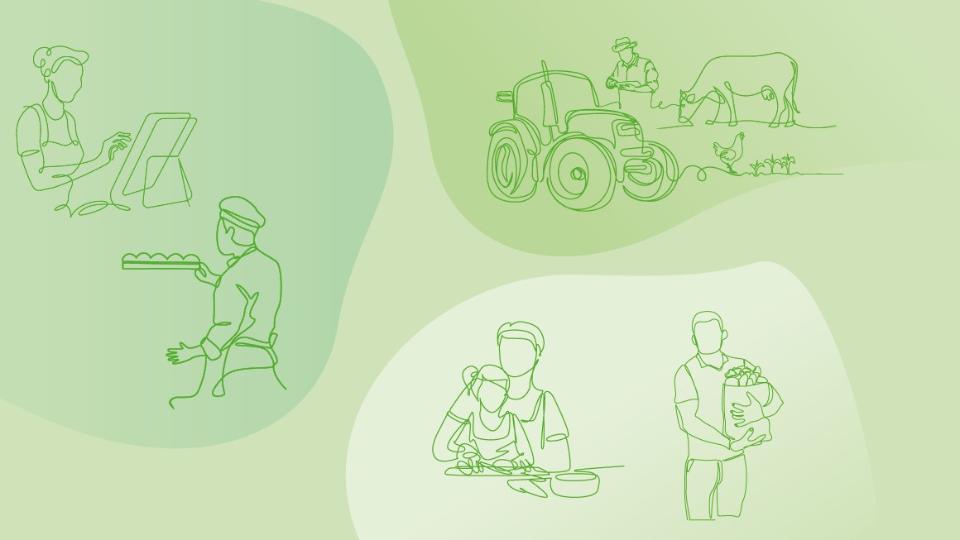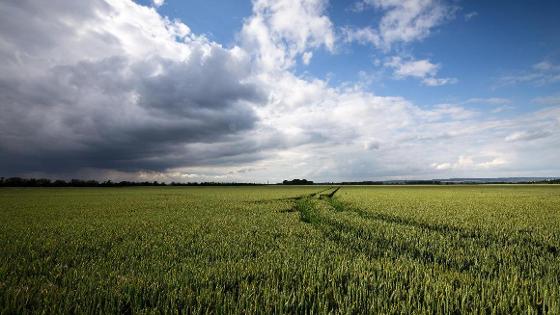2030 Organic Strategy - National Strategy for 30 % Organic Food and Farming by 2030
30 measures for 30 % organic production by 2030: On 16 November 2023, Federal Minister Cem Özdemir presented his ministry's (BMEL) 2030 Organic Strategy in Berlin.
The Federal Government is pursuing the goal of a sustainable and future-proof agricultural sector that allows farmers to engage in economically viable farming, while at the same time doing justice to our environment, animals and climate. The Commission on the Future of Agriculture (Zukunftskommission Landwirtschaft - ZKL) recommends that the entire agri-food sector, in all its diversity, should be aligned to the goals of environmental protection and resource conservation.
In this process, the ZKL attributes a vital role to organic farming for the transformation of the agricultural sector as a whole. It demands that all suitable policy instruments should be applied coherently and that, in particular, the entire value chain should be taken into consideration, because organic production provides answers to biodiversity loss and the climate crisis: The legal requirements result in better protection of water and biodiversity, better climate change mitigation, better resource management and advantages in climate change adaptation. The scientifically recognised services contribute to securing our food resources in the long term and offer development prospects for farms. With this in mind, the Federal Government has set itself the goal of having 30 per cent of agricultural land farmed organically by 2030.
Enabling enough holdings to seize the opportunity and convert their land to organic farming requires a comprehensive practice-oriented strategy developed jointly by the Federal Government, the Laender, industry, academia and practitioners for the entire value chain. This was the BMEL's objective in drawing up the 2030 Organic Strategy.
What is the aim of the 2030 Organic Strategy?
The 2030 Organic Strategy aims to create the right framework and remove existing barriers along the entire value chain – that is, from input availability to production, processing, retailers and consumers – so that 30 per cent of farmland in Germany can be cultivated organically by 2030.
In doing so, a further objective is to develop the organic food and agricultural sectors qualitatively. For instance, the resilience and production potential of organic farming could be better exploited, and the scientifically documented, societally relevant environmental services that organic farming provides could be enhanced. The aim is to have an organic food and agricultural sector that uses its innovative strength to make a significant contribution to the sustainable development of the entire food and agricultural sector. This also includes outlining development prospects for conventional operators and making the innovations of the organic agri-food sector accessible to all economic operators.
The 2030 Organic Strategy focuses on four pivotal approaches:
- Providing better remuneration for services to society rendered by the organic farming and food sector;
- Supporting the processing of organic food and increasing the amount of organic food in away-from-home catering;
- Strengthening research, knowledge transfer, data availability and infrastructure for the organic food chain; and
- Drawing up solutions to remove bureaucratic obstacles.
What are the main points in the 2030 Organic Strategy?
The 2030 Organic Strategy, comprising a total of 30 measures, shows ways in which the BMEL, together with all the main stakeholders, can remove existing obstacles. By taking these measures, important new stimuli will sustainably strengthen the organic agri-food sector along the entire value chain.
Key areas include:
- Strengthening production through strong organic breeding activities; gearing research, extension services and input availability to organic farming practices;
- Promoting organic processing establishments geared to sustainability and hence strengthening organic value chains, i.a. in rural regions;
- Expanding away-from-home catering, especially in communal catering facilities;
- Gearing the Common Agricultural Policy (CAP) towards the goals of sustainability, environment protection and climate change mitigation, and to the excellent qualities of the organic agri-food sector;
- Expanding communication and education on organic farming practices;
- Creating a coherent legal framework;
- Developing organic farming methods as a policy option for the Global South to achieve the human right to adequate food.
Participatory Process
To develop the 2030 Organic Strategy, the BMEL engaged in a multi-stakeholder and participatory process that facilitated broad participation by all relevant stakeholders. The stakeholders included, for example, representatives from the Laender, several federal ministries, science, the food and agricultural sector, agricultural practice and the general public. Excellence teams working in parallel assessed the status quo on a number of different issues and drew up proposals for measures. Expert forums were held to present and discuss the interim results.
Further information on the participatory process is available here.











